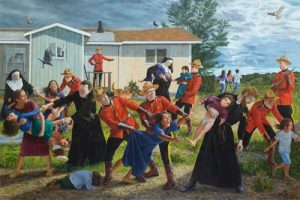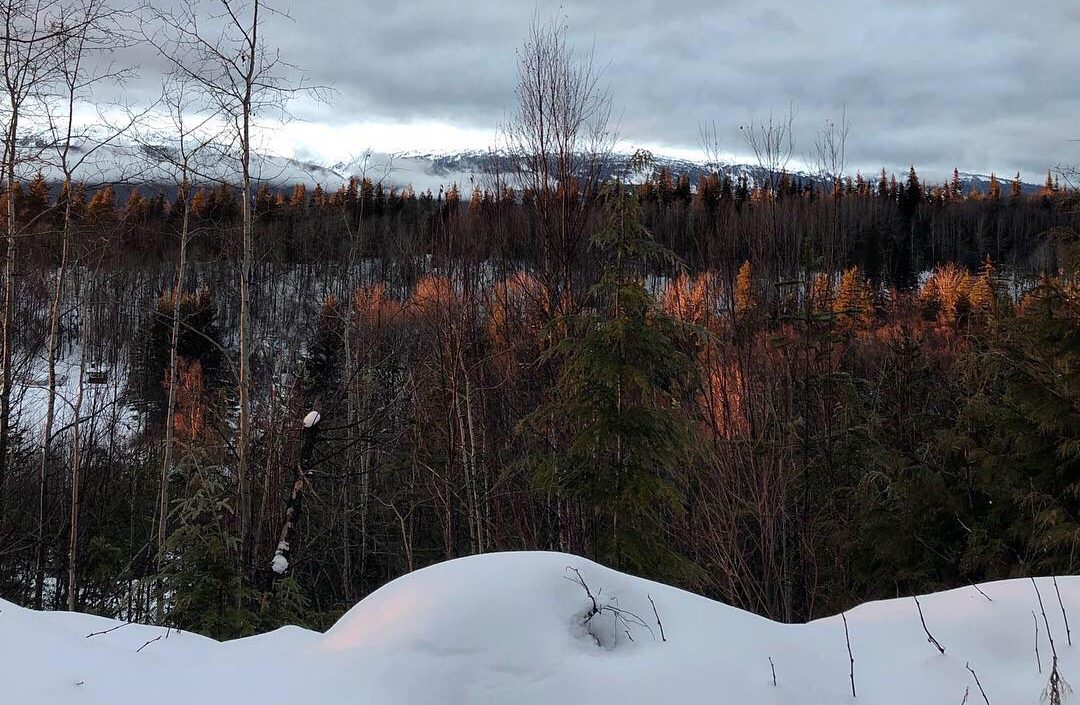“Figuring out this place called home is a problem (87). Why? Why is it so problematic to figure out this place we call home: Canada?
Consider this question in context with Chamberlin’s discussion on imagination and reality; belief and truth (use the index). Chamberlin says, “the sad fact is, the history of settlement around the world is the history of displacing other people from their lands, of discounting their livelihoods and destroying their languages” (78). Chamberlin goes on to “put this differently” (Para. 3). Explain that “different way” of looking at this, and discuss what you think of the differences and possible consequences of these “two ways” of understanding the history of settlement in Canada.”
The history of many of the world’s conflicts is a history of dismissing a different belief or different behaviour as unbelief or of misbehaviour, and of discrediting those who believe or behave differently as infidels or savages.
– J. Edward Chamberlain
If this is your land, where are your stories? (p. 78)
I don’t believe in Canada- our home on Native land.
A nation brought together through myth- terra nullius, empty wilderness, the Canadian Pacific Railway, a national government imposed to diminish and disappear already functioning systems of Indigenous governance, a nation imposed to bring civility to those perceived as savage through strategies such as the Indian Act, residential schools, the 60s scoop, the ongoing crises of Indigenous youth in care, away from their communities and cultures (see work by Cindy Blackstock). Indigenous communities and cultures, which, today, are still diminished and discriminated against by the RCMP, the Supreme Court of Canada, provincial education systems, Justin Trudeau, Gerald Stanley, the manager at McDonald’s, Brayden Bushby, and that nice white lady who taught you (a convoluted and flawed) history in second grade.
All this violence, vested by, her majesty, the Queen.
All this violence, upheld by white supremacist, patriarchal, capitalist, colonial bullshit, often in disguise- as nice guy Justin Trudeau, or Debra, the shopkeeper who follows Indigenous youth around the store “just in case” (still – white folks – we must exercise patience and care in educating these people, too, despite their hatred and the stories they tell themselves to feel at home, they are still here, and they have been taught to believe in the great Canadian myth. We all deserve opportunities to unlearn, but do not let this work of unteaching fall unconsentually on Indigenous people, screaming, again and again, see my humanity! Hear my stories! Respect my pain! Respect my culture! Respect this land! Respect me!).

Kent Monkman. 2016.
It is so problematic to figure out our home – Canada – because the nation was formed through genocides and violence and is maintained through the ongoing suppression of rights for Indigenous folks from coast, to coast, to coast. The nation is sustained on the false belief of Indigenous deficiency – that Indigenous ways of knowing, Indigenous governance, Indigenous economies, are not and could not have been enough to sustain and maintain this nation, this population as a whole.
As a society, we must recognize the strength of Indigenous resilience in the face of hundreds of years of colonial violence. Canada’s wealth has come entirely from the theft of land and the sale and degradation of natural resources, enabled by cooping Indigenous people up on small reserve lands, outlawing their spiritual and life-giving practices, taking their children, and languages, and pride away (or trying to – but failing in the face of Indigenous resilience). Capitalism and colonialism are inextricably linked, and both, are inherently harmful to (most) people and the planet (a whole and living being).
When we imagine Canada as a healthy, generous, and safe nation, we are doing just that- imagining. We are believing in the possibilities of a nation, without remembering the truth of settler-colonial violence that founded and maintained the possibility of this country. We are failing to acknowledge our privileges in experiencing health, generosity, safety through the nation state, Canada.
There is hope.
We must reimagine and relearn this country and our own communities and remain open to the possibilities of dismantling Canada. Of supporting the emergence of new governance, legal, and educational structures.
May we acknowledge Indigenous nations. May we allow them to be at home, on the land, in mind and in spirit (Chamberlain 84). May we see their strength. May we hear their stories. May we follow their guidance and offer our support selflessly. May we be humble. May we, settler colonial Canada, surrender our power, our privilege and the land that is not ours, back to the people who’ve known and cared for it for millenia. May we remember the Truth in Truth and Reconciliation. May we make moves towards decolonization- the return of land, power and privilege (Tuck & Yang) in our personal, interpersonal, and institutional engagements.
…and there may still be tension, pain, hatred, violence, but these moves to justice will, inevitably, bring health, generosity and safety to those who’ve been fighting. Those who’ve been waiting- for themselves, their grandmothers, their great-grandchildren.
Works Cited
CBC Archives. The Group of Seven: The myth of the unspoiled wilderness. 1996. Accessed at: https://www.cbc.ca/archives/entry/the-group-of-seven-the-myth-of-the-unspoiled-wilderness.
CBC News. Brayden Bushby to stand trial on 2nd degree murder for death of Barbara Kentner. 2019. Accessed at: https://www.cbc.ca/news/canada/thunder-bay/bushby-trial-charges-decision-1.4986393.
CBC Radio. The Millenium Scoop: Indigenous youth say care system repeats horrors of the past. 2018. Accessed at: https://www.cbc.ca/radio/thecurrent/a-special-edition-of-the-current-for-january-25-2018-1.4503172/the-millennium-scoop-indigenous-youth-say-care-system-repeats-horrors-of-the-past-1.4503179.
Chamberlin, J. Edward. If This is Your Land, Where are Your Stories? Finding Common Ground. Toronto: Vintage Canada, 2004. Print.
Coulthard, Glen. Urbs Nullius: Gentrification and Decolonization. 2015. Accessed at: http://ecosocialistsvancouver.org/glen-coulthard-%E2%80%93-urbs-nullius-gentrification-and-decolonization.
Francis, Daniel. National Dreams: Myth, memory and Canadian history. 2015. Accessed at: https://www.thecanadianencyclopedia.ca/en/article/national-dreams-feature.
Friesen, Joe. Gerald Stanley aquitted in the shooting death of Colten Boushie. 2018. Accessed at: https://www.theglobeandmail.com/news/national/gerald-stanley-acquitted-in-death-of-colten-boushie/article37929427/.
Hunter, Joyce. #everydayracism (Facebook post). 2019. Accessed at: https://www.facebook.com/joyce.hunter1/posts/10161443505405066.
Tuck, Eve & Yang, K. Decolonization is not a metaphor. 2014. Accessed at: https://jps.library.utoronto.ca/index.php/des/article/view/18630

Hey Georgia! Thank you so much for your powerful post! (and sorry that my comment is late!)
Thank you for bringing up the problems with calling Canada home as a settler, and talking about how decolonization cannot be a simple acknowledgement of past wrongs but needs to shape our future, giving power and land back to Indigenous nations. Since our governments and institutions continue to contribute to colonial violence I think that systematic change is really essential.
I really enjoyed reading the article in your first hyperlink about the group of seven and their artwork! I think it’s a really good example of settler culture writing Indigenous folks out of their narratives and even images of Canada. That a style of art thought to be so uniquely “Canadian” literally involved erasing any inhabitants from the landscape and painting it as empty and ripe for settlement pretty much encapsulates the harmful attitude of colonizers. Last year I went to the “National Gallery of Canada” and saw works by the group of seven on display there. They also had a “Canadian and Indigenous Galleries” area which was hugely disappointing in that their actual collection of artwork by Indigenous artists was small and at the end of the gallery, and the majority of the artwork was done by settlers… often setters misrepresenting Indigenous nations as well. I find it really frustrating that these problematic works from the past are still being celebrated and aren’t questioned often enough.
Hi Suzanne-
Thank you so much for reading- and for affirming the importance of decolonization. Canada needs as many settlers as possible willing to listen, surrender power, and make space for a radical Indigenous resurgence! Although, I appreciated Chamberlain’s last chapter in which he talked about how returning title to Indigenous folks throughout Canada might actually have very little affect on the majority of residents. It made these big changes feel more possible to me. I appreciated his hope, his ability to see the possibilities so clearly.
I’ve never been to the National Gallery of Canada but would love to go, even if it’s a bit of a flop. The last gallery I went to was the Winnipeg Art Gallery where the largest contemporary Indigenous exhibit in Canada thus far was on display – Insurgence/ Resurgence, it was called. I brought my grandma, who is Cree. My mom, aunt and I all found the work to be extremely powerful (sooooooo many symbols and examples of Indigenous strength and resurgence!), but my kookum, bless her soul, who is 80 now, responded by saying this is art???!! It was a funny and refreshing moment, reminding me to stay light and to laugh. Her Cree-ness lives inside her, in the land, in her relationships. She didn’t need to see it affirmed through any contemporary representations. Haha.
Hope you’re well today, Suzanne! Kindly,
Georgia